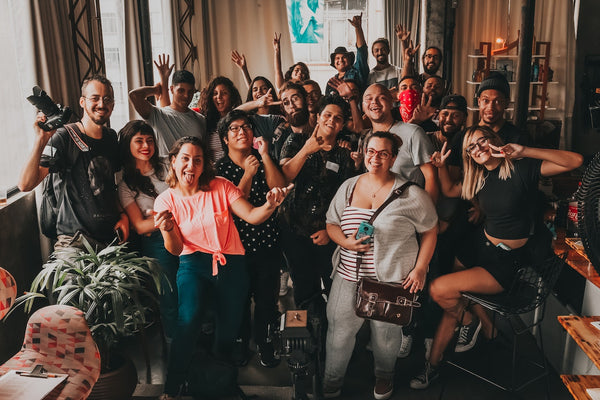The importance of including self-diagnosed people in online communities
Inclusive and unbiased online spaces
Online communities have become an integral part of our daily lives, providing platforms for people to connect, share experiences, and seek support. However, in order to foster inclusive environments, it is crucial that these communities embrace and accept neurodivergent individuals, including those who may not possess an official diagnosis but identify themselves as such. This article aims to shed light on the importance of welcoming self-diagnosed neurodivergent individuals into online communities, recognizing that a formal diagnosis is often a privilege that many do not have.

Understanding Neurodiversity:
To comprehend the significance of accepting self-diagnosed individuals into online communities, we must first understand the concept of neurodiversity. Neurodivergence refers to the innate differences among individuals in neurological functioning and cognitive processes, including conditions such as autism, ADHD, dyspraxia, and more. Embracing neurodiversity means acknowledging and appreciating these variations as a normal and valuable part of human diversity.
Inaccessibility of Formal Diagnosis:
While obtaining a formal diagnosis can be a valuable tool for understanding oneself and accessing appropriate support, it is essential to recognize that not everyone has the means or opportunity to receive such a diagnosis. Several barriers may contribute to the inaccessibility of diagnosis, including financial limitations, geographical restrictions, long waitlists, biased professionals, or misdiagnosis. For these individuals, self-diagnosis becomes a tool for self-awareness, self-understanding, and finding communities where they feel a sense of belonging.

Empowering Self-Diagnosis:
Including self-diagnosed neurodivergent individuals in online communities is a fundamental way to empower and validate their lived experiences. Acknowledging their self-diagnosis promotes self-advocacy, increases visibility, and allows for mutual support within the neurodivergent community, regardless of formal documentation. It is essential to recognize self-diagnosis as a legitimate way for individuals to understand and articulate their own neurodivergent identities.
Breaking Down Stigmas and Educating Others:
Welcoming self-diagnosed individuals into online communities helps challenge the negative stereotypes and stigmas associated with neurodivergence. By providing a supportive space, these communities can foster a better understanding of neurodiversity in society at large. Self-diagnosed individuals often bring valuable perspectives, personal experiences, and insights that can contribute to educating others and creating a more compassionate and inclusive environment.

The Importance of Safe Spaces:
Online communities play a vital role in the lives of neurodivergent individuals, often providing a safe space for connecting with like-minded individuals who understand their experiences. By accepting self-diagnosed individuals, these communities create an inclusive environment that supports personal growth, learning, and the exchange of valuable information. Access to supportive communities can significantly enhance the mental well-being and self-acceptance of individuals who might otherwise feel isolated or marginalized.
Recognizing the privilege associated with formal diagnoses, we must actively create inclusive spaces that validate and embrace self-diagnosis as a valid means of understanding one's own neurodivergent identity. By doing so, we foster empathy, challenge stigmas, ignite positive dialogue, and pave the way for a society that values and supports the diversity of human neurology.
